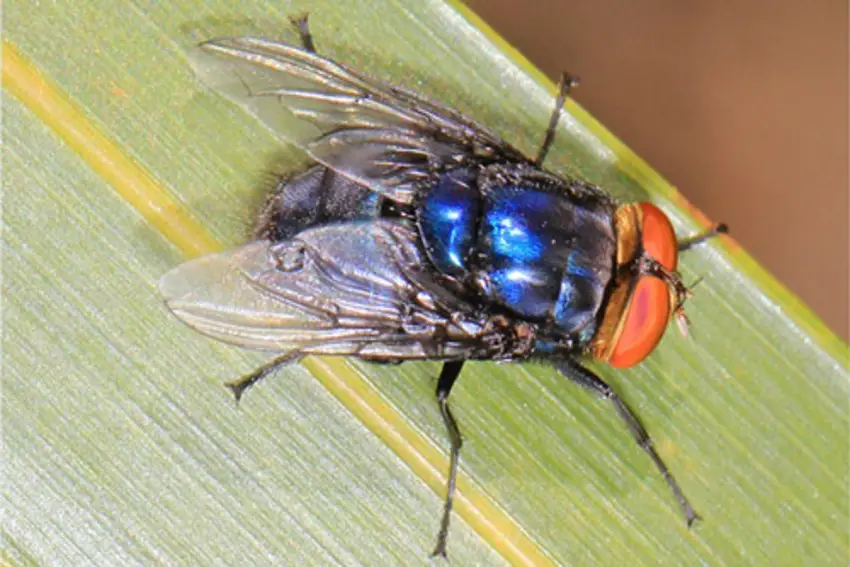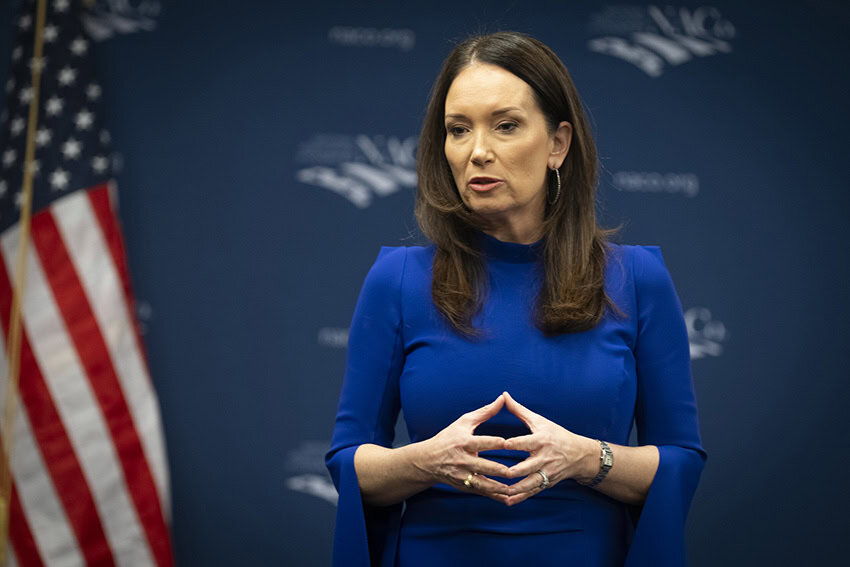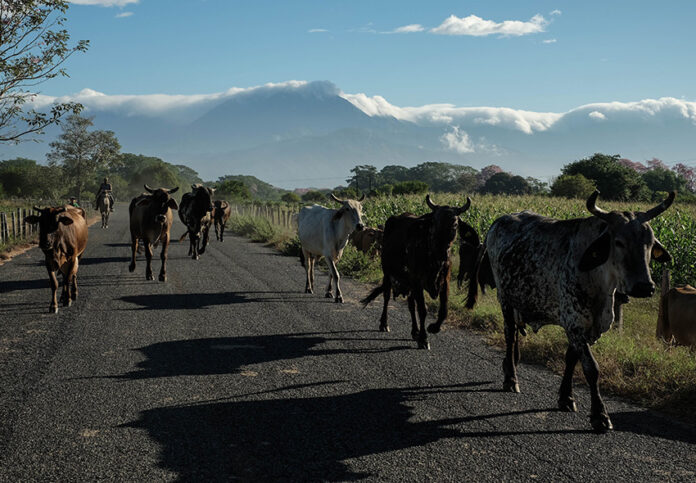U.S. Secretary of Agriculture Brooke Rollins has written to her Mexican counterpart to warn that imports of Mexican cattle could once again be restricted if Mexico doesn’t take additional steps to combat the New World screwworm (NWS).
The United States paused imports of Mexican cattle last November after cases of screwworm — a flesh-eating pest — were identified in the southern state of Chiapas. More than 800 cases have been detected in animals in southern and southeastern Mexico since then.
Mexico resumed cattle exports to the United States in February after the two countries signed an agreement that set out stricter screwworm control measures and significantly reduced the number of calves that can enter the U.S. per day.
Screwworm maggots can enter the body of livestock and other animals through open wounds and subsequently feed on animals’ living flesh. Cases in humans are rare, but can occur, with Mexico’s Health Ministry reporting one such case in Chiapas earlier this month.
In her April 26 letter to Mexican Agriculture Minister Julio Berdegué, Rollins said that Mexico and the United States are “at a critical inflection point” in their “shared campaign” against the New World screwworm, and declared that she is “very concerned about our collaboration.”
“The outbreak in southern Mexico continues to expand, and every day that passes without full deployment of sterile insect technique (SIT) operations represents a lost opportunity to contain this pest and prevent its spread beyond the Isthmus of Tehuantepec,” she wrote.
NEW: Per @USDA official, @SecRollins sent this letter to the Mexican government today, threatening to restrict all animal imports from MX into the U.S. at ports of entry, including cattle & bison, if the MX government doesn’t begin to cooperate fully with the U.S. in its efforts… pic.twitter.com/E6fHpxg2mA
— Bill Melugin (@BillMelugin_) April 26, 2025
Rollins complained that Mexican aviation authorities have imposed restrictions on Dynamic Aviation, a U.S. company that uses aircraft to release large numbers of sterile screwworm flies to combat the propagation of the pest.
She said that the restrictions “appear inconsistent with a successful and coordinated campaign” against screwworm.
“As an initial matter, they have limited Dynamic to flying under a temporary 60-day permit, … which does not give the necessary assurance that our current activities can be sustained,” Rollins said.
“In addition, they have limited Dynamic to flying only 6 days per week, whereas the success of the operation requires consistent flights 7 days per week,” she wrote.
The agriculture minister also said that her department had been informed that Mexican customs authorities are “imposing substantial import duties on critical aviation parts, dispersal equipment, and sterile fly shipments.”
“This is despite the fact that all materials and operations are being funded entirely by the U.S. government to support our shared goal of stopping the northward spread of NWS and pushing the pest back toward the biological barrier at the Darién Gap,” Rollins wrote.

“We do not understand how our official efforts to stop a common pest can be subject to such burdensome custom duties. These delays and costs not only disrupt operations but risk delaying aircraft deployment at the precise moment when rapid action is needed most,” she said.
Rollins urged Mexico’s Agriculture Ministry (SADER) to take immediate steps to “remove these barriers” and also asked the ministry to “engage directly” with other authorities to “facilitate Dynamic’s operational clearance for a minimum of one year, preferably as long as needed or indefinitely.”
She also asked the ministry to “secure full import clearance and duty waivers for all NWS-related aircraft parts, sterile flies, and SIT equipment currently being provided by” the United States “for the eradication campaign.”
In addition, Rollins requested that SADER “designate a high-level point of contact who will work directly with” the the U.S. Department of Agriculture (USDA) “to remove remaining bureaucratic and regulatory obstacles with urgency.”
“Time is of the essence,” the agriculture secretary wrote.
“… The situation requires immediate attention and decisive coordination at the highest levels of your government. I must inform you that if these issues are not resolved by Wednesday, April 30, USDA will restrict the importation of animal commodities, which consist of live cattle, bison and equine originating from or transiting Mexico to protect the interest of the agriculture industry in the United States,” Rollins said.

That warning prompted the El Financiero newspaper to ask a pertinent question in a headline — “With what will they fill their burritos?”
In her letter, Rollins also proposed “convening a U.S.-Mexico NWS Aerial Dispersion Strategy Meeting, with participation from both governments, technical experts, and operational partners, to align our strategy and ensure a seamless and sustained response.”
Berdegué said on social media on Sunday that he “promptly” responded to the agriculture secretary’s letter.
“As our President Claudia Sheinbaum has said, we act with a cool head, we collaborate, we cooperate, but we never allow ourselves to be subordinated,” he wrote.
“… I’m sure we’ll reach good agreements,” Berdegué added.
Sheinbaum: SADER has been working to combat screwworm since the pest first appeared
At her Monday morning press conference, President Sheinbaum effectively dismissed some of the USDA’s requests of Mexico with regard to the fight against screwworm, saying that they “are not appropriate”
She said that SADER has been working to combat screwworm since it was identified in Chiapas late last year.
There are “many systems of control” against the pest that have long been in operation in Mexico, Sheinbaum added.

“But now we’re reinforcing [our systems] from [Mexico’s] southern border to avoid propagation in the entire country,” she said.
Sheinbaum appeared to attribute the United States’ dissatisfaction with Mexico on the issue to political reasons, highlighting that “several” U.S. states — 36 in fact — will hold gubernatorial elections in November 2026.
“So what we’ve been saying is that Mexico can’t be used as a piñata as part of their campaign, in a negative way,” she said.
“… There are things in which they’re right, [matters] of collaboration, of coordination, and others we believe are excesses,” Sheinbaum said.
“But the important thing is to attend to this screwworm situation in cattle, which we are doing,” she said.
With reports from Europa Press
